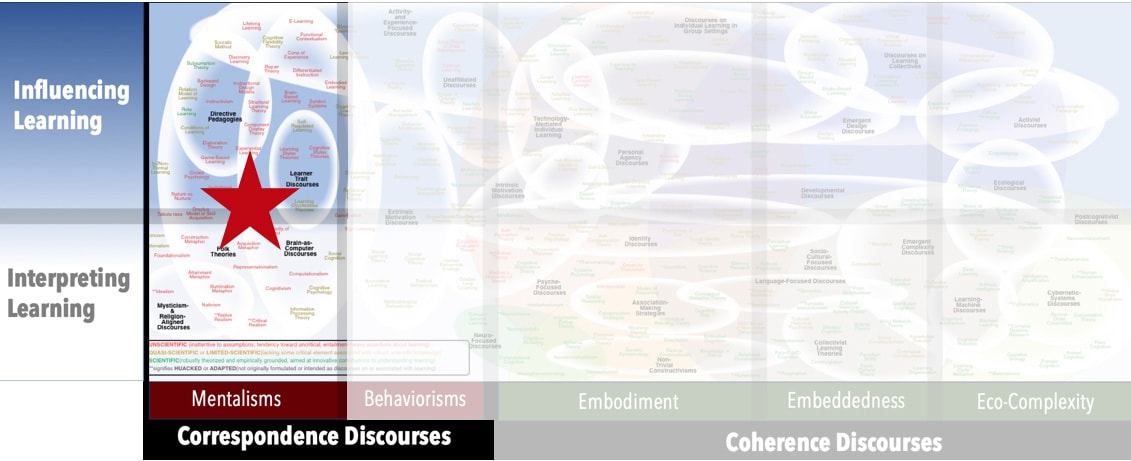Focus
Human knowledge (or lack thereof) at birthPrincipal Metaphors
- Knowledge is … word-based formulations
- Knowing is … written/recorded information
- Learner is … a transcriber/recorder
- Learning is … scribing, recording
- Teaching is … dictating
Originated
AncientSynopsis
Tabula rasa, Latin for “blank slate,” refers to the belief that human minds are blank at birth – and, hence, all personal knowledge derives from perception and experience. Similar constructs include:- Pu (Daoism, ancient) – a Chinese word meaning “uncarved wood, plain wood,” which serves as a metaphor in Daoism for the knower’s natural state. Common connotations include “rough, natural, essential quality, wholeness, without ornamentation, uncomplicated”
- Learning Paradox (Plato, c. 400 BCE) – the assertion that learning is inherently impossible, arising from the assumption that one can only recognize a phenomenon on the basis of what one already knows
Commentary
Tabula rasa only makes sense if the word “knowledge” is restricted to formal, language-based, propositions. This delimitation renders insensible such statements as, “Newborns know to suckle” – a delimitation that is so narrow as to render the construct of knowledge useless. There is ample neurological, biological, and psychological evidence that humans are born knowing many things, much of may be necessary to later learning of abstract formulations.Authors and/or Prominent Influences
Aristotle; John LockeStatus as a Theory of Learning
Tabula rasa is certainly a perspective on learning, but it is more a metaphor than a theory.Status as a Theory of Teaching
Tabula rasa is not a theory of teaching.Status as a Scientific Theory
Tabula rasa has no scientific basis.Subdiscourses:
- Learning Paradox
- Pu
Map Location

Please cite this article as:
Davis, B., & Francis, K. (2024). “Tabula rasa” in Discourses on Learning in Education. https://learningdiscourses.com.
⇦ Back to Map
⇦ Back to List
